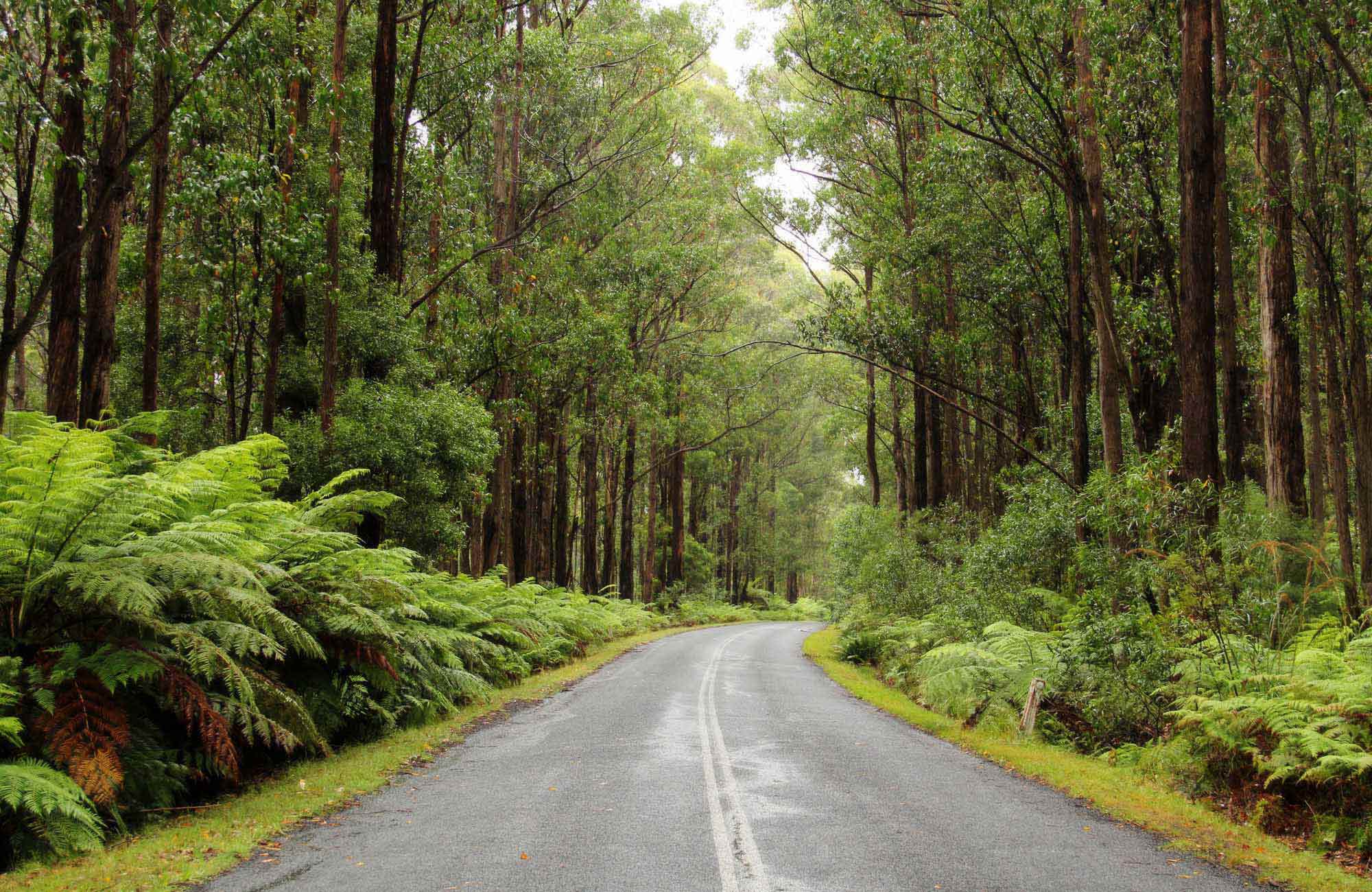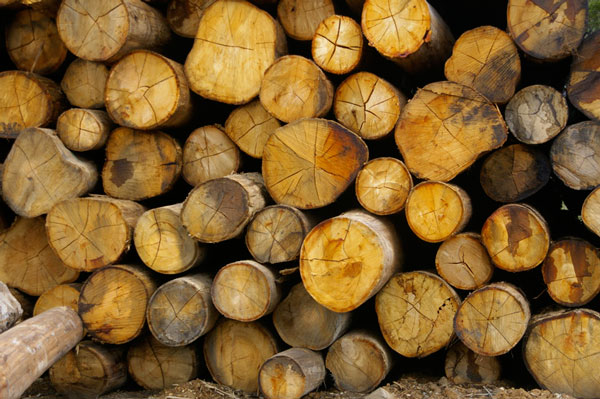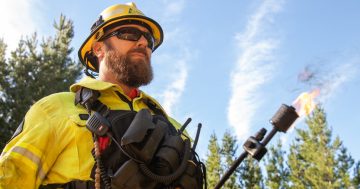The rules of polite conversation are clear; politics and religion are generally no-go areas, and in Southern New South Wales, foresty, logging, and woodchips are perhaps also on that list given the volatile nature of debate in the past.
But the rules of polite conversation don’t resolve or inform discussion.
In recent weeks the State and Federal Governments have been inviting views on forestry practices across an area that takes in Tumut, Batemans Bay, and Eden.
Community meetings have been held and submissions to the review close Monday, March 12. A number of local groups have been encouraging members and supporters to take part, mostly opposing further logging – Great Southern Forest, National Parks Association Far South Coast.
One local with significant experience in the foresty industry believes it’s time people step up, be brave, put politics aside, and re-engage in what has been a divisive and emotionally charged issue.
Rob de Fegely is a forester and lives in the bush south-west of Pambula. His view is that all our forests need to be managed better and more creatively for the benefit of the environment, regional communities, and the industry.
“I’d like to think that we can have a far more mature debate about what we as a country want to do with our forests,” Rob says.
His global forestry career started 38 years ago at Bombala, but Rob is currently the Chair of Sustainable Timber Tasmania, Co-chair of the Commonwealth Government’s Forest Industry Advisory Council, and a member of the Far South Coast Regional Advisory Committee for NSW National Parks.
Rob is hopeful that the current review of the two Regional Forest Agreements covering state owner forests in South East NSW will not just improve on the work of the past but generate a bigger conversation that takes in the National Parks system and privately owned natural forests.
“I’d love to see more money for our National Parks, budgets are way too low, we don’t spend anything like the dollars per hectare that we need to, to get the work done,” he says.
“I feel for the staff, we are not giving them the support or the resources they need to manage the forests around us.”

With almost 40 years in the timber industry, Rob de Fegely is hoping creative ideas might emerge from the current review of the RFAs. Photo: Ian Campbell.
Rob believes the aggression of forestry debate in the past continues to poison talk on the issue today.
“I think the forest industry was loved in a social license sense through the 1950’s and 60’s,” he says.
There was a shift in the 1970’s according to Rob when woodchips became part of the industry, and those pioneering, nation-building days the timber industry was a part of for 150 years ended.
“It [woodchips] was really confronting, I remember going to Eden as a student in about 1976, and thinking – wow!
“Big clear-felled coups, about 800 hectares, they are all covered in trees now. But it was very confronting, and one of the reasons the industry lost it [public opinion],” Rob believes.
The review of Regional Forest Agreements (RFAs) underway throws up all sorts of ideas and talking points for Rob de Fegely.
“Harvesting in natural forests has declined by 60% nationally since the signing of most of the RFAs,” he says.
Rob points to better codes of practice in the industry, a reduction in the area available for harvesting, and the impact of the environmental movement as being the reasons.
“Our [Australia’s] agriculture feeds about 60 million people a day, according to Cotton Australia we clothe about 500 million people a day, but we can’t supply our own timber requirements,” Rob says.
“Without opening up vast areas of forest for production, I’d like to think we can do more across tenures, and contribute more to not only Australia’s demand but also the demands of our South East Asian neighbours.”
Forests currently in private ownership have great potential in Rob’s mind. He’d like to see landholders assisted in managing the health of the bushland they own and perhaps working with the timber industry.
“We’ve got plenty of regulation but let’s see how we can assist private landholders to do different things,” Rob says.
“None of the industry here knows what people have got, we are far too focused on government-controlled forests.”
Rob is calling for more local control and input and a wider view of landscape management, which he believes would create a more positive and constructive discussion about developing the industry and meeting environmental needs.
Tapping into indigenous ways of managing forests is part of the future and part of that more localised approach Rob is suggesting; one that builds skills and understanding of forest health.
“Most people can tell when they find a horse or cow that’s been maltreated,” Rob explains.
“But you can’t say the same for forests, understanding that requires a little bit of skill.
“Reports from early explorers and surveyors suggest our forests were far more open then they are today with grassy understories, nowhere near the shrub layer that we have today and fewer trees per hectare,” he says.
“What did the Yuin People do down here? How did they manage the forests, how did they manage fire?”

The road to Myrtle Mountain lookout, South East Forest National Park. Photo: John Yurasek NPWS website.
Greater trust is critical in any mature advance in the foresty discussion locally. Rob flags “a classic conflict of interest” that undermines public confidence – The NSW Government acting as owner, regulator, and policemen in State Forests.
“It’s very hard to be the regulator and the operator, it’s open to influence in some form or another, and I am not suggesting corruption in any way,” Rob says.
“You really need an independent, skilled arbiter, and this is my experience in Tasmania. The Tasmanian Forest Practices Authority has been running for 30 years now, they are the independent policeman on public and private land for all forest operations – they look after ecology, threatened species, and soil.
“It’s a model that New South Wales and Victoria could adopt very easily, it would remove a lot of the contention about how forests are being managed,” Rob says.
The different “values” our forests represent guide Rob’s thinking and perhaps pull his ideas together.
“I’d love to think that in this more mature debate we can think about some of the alternative values, how we price them, and how we get the funds to ensure fantastic forests are rewarded,” he says.
Rob believes there are plenty of sticks in the system telling people what they can’t do but he asks, “Where are the carrots?”
“As a private landholder I am likely to improve habitat for lyrebirds, koalas, bandicoots, and potoroos, but where is the direction to do that?
“And how do we build that across the landscape to link in with National Parks, the Forestry Corporation, Crown Lands and others to develop a system across the South East where we would end up with a landscape we are all proud of?” Rob says.
Let the “polite conversation” about forestry in southern NSW begin, submissions to the RFA review close March 12.
Next week, religion!
*This article first appeared on RiotACT










